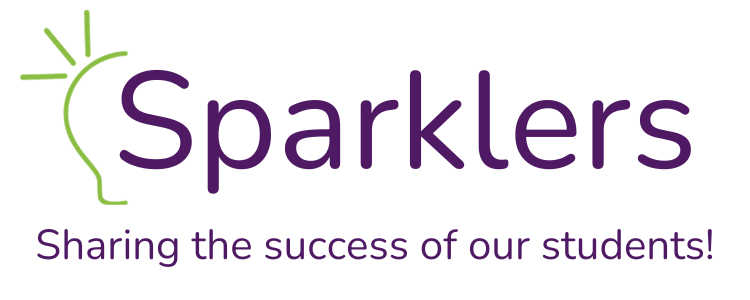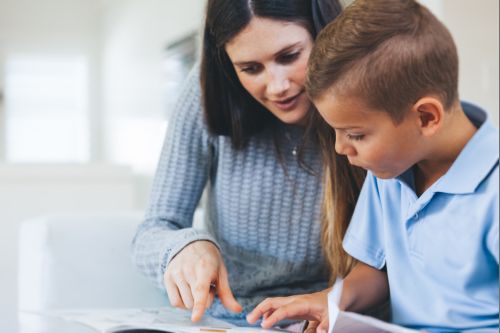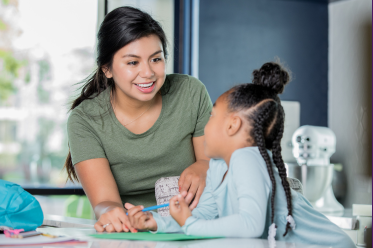
A student’s success is always good to celebrate…those “light bulb” moments that spark a new attitude and path to proficiency are worth sharing. We hope you enjoy this one!
Yuto and English:
From 2nd Language to a Love for Reading and Writing
A Year of Growth: Yuto's Success Story
Meet Miss Ash...

For many young learners, especially those for whom English is a second language, mastering English can feel daunting. Yuto, an 8-year-old boy from Japan, understood this challenge all too well. His family had recently moved to the U.S., and though he excelled in math, a universal language in its own way, the complexities of English overwhelmed him. My name is Ms. Ash, and I had the privilege of teaching Yuto English for a year. Through our journey, Yuto’s initial apprehension transformed into confidence and joy as he discovered the power of language studies and how it can change your life.
Building Trust and Interest

When a child feels uncertain or reluctant, the first step is to build trust. For Yuto, English felt unfamiliar and intimidating, creating a barrier to engagement in school. To overcome this, I dedicated time to getting to know him, fostering a sense of safety and connection. Building a strong relationship early on is essential in a student’s learning journey. It helps them see that their tutor is not just there to instruct but also to genuinely care and encourage them.
I soon learned Yuto loved history and baseball. These became our hot topics in English lessons. I created custom vocabulary cards tied to these interests, allowing Yuto to connect emotionally with what he was learning. His enthusiasm grew, and vocabulary practice quickly became the highlight of his day. Using that familiarity cut down on Yuto’s stress and created a sense of comfort. Through games, memory challenges, and sentence creation, he began to feel increasingly at ease with English.
Creating a Love for Reading

Using topics Yuto loved, we read stories that featured famous baseball players and wild historical escapades. His natural curiosity took over, and he became determined to understand each new word in our stories. This set the stage for lessons on context clues, a skill that helped Yuto decode words independently. With a steady dedication of about nine hours a week, Yuto’s reading level improved dramatically from preschool to first grade within three months.
Incorporating Educational Media: "Brain Breaks"

Learning sessions need balance, so I introduced educational media as “brain breaks” to keep learning enjoyable and dynamic. At this time Yuto and I would often spend up to three hours a day together. After so long it’s important to introduce something relaxing yet still fun and engaging. We watched Between the Lions for vocabulary building, Reading Rainbow to explore age-appropriate stories, and Wishbone to introduce classic literature. All of which are available for free on YouTube. Not only did this give Yuto an exciting way to engage with language, but it also helped him learn about American culture in a way that felt natural and relevant.
Fostering Creativity Through Poetry

Midway through the year, Yuto’s school curriculum introduced poetry. We started with haikus, a familiar Japanese form, which served as a bridge between his culture and his English studies. Gradually, we explored fun English poetry, including Dr. Seuss, until Yuto felt comfortable crafting his own whimsical poems; some of which I’ve kept many years later. This creative outlet allowed Yuto to play with his expanding vocabulary while expressing his imagination.
Empowering Independence in Reading and Writing

After winter break, Yuto said there was something he wanted to show me. He flashed three big books at the camera with a toothy grin. “Look what I got, Ms. Ash!” He exclaimed. “Dr. Seuss is so cool! Mom took me to the library and I got all of his books.” This milestone was a breakthrough moment: Yuto had chosen books to read independently. A moment I still remember vividly with pride. Giving him space to write poetry had sparked a newfound love for reading a proud achievement for him and a testament to his growing confidence.
By March, Yuto was reading at a second-grade level, and we practiced reading aloud to improve his fluency and familiarity with word spellings. Our stories became longer, the language more complex, but Yuto was undeterred. To build on this progress, I introduced writing projects, allowing him to create his own narratives using his expanding vocabulary. Through these stories, we worked together to polish his sentences, enhancing both structure and creativity.
Challenging and Celebrating Growth

One day, I came across a state writing contest for third graders and thought it would be the perfect challenge. Yuto was thrilled at the idea, eagerly crafting a story about a samurai’s journey to America, inspired by his own experiences. His writing had transformed since our early days, from simple sentences to descriptive, imaginative narratives. His confidence and pride were visible in every line.
By the end of the month, Yuto’s story won fourth place in the contest, along with a $15 gift card to McDonald’s. This recognition was a major accomplishment and a celebration of his growth, affirming for him that his hard work was paying off. By the end of the year, he reached the grade-appropriate reading level, and his mother shared how he was using his new vocabulary to make friends, finally beginning to feel at home in America.
The Takeaway for Parents

Yuto’s progress illustrates how personalized, engaging, and compassionate tutoring can help any child thrive. By identifying a child’s interests, introducing relevant materials, and incorporating educational breaks that feel like “fun,” tutors can create a learning environment where students feel empowered to explore, make mistakes, and succeed. With support, structure, and connection, even the most challenging subjects can become a source of joy and pride for young learners. While your child’s journey may look different from Yuto’s, it’s our job to make sure they can succeed no matter the challenges they face.
We know students can be doing better in school and are often capable of accomplishing more than what they think they can accomplish.
We believe in the potential of all of our students, and they know we believe.
Proficiency = Opportunity. This is why we tutor!
Learn more about College Tutors & Proficiency Builders

